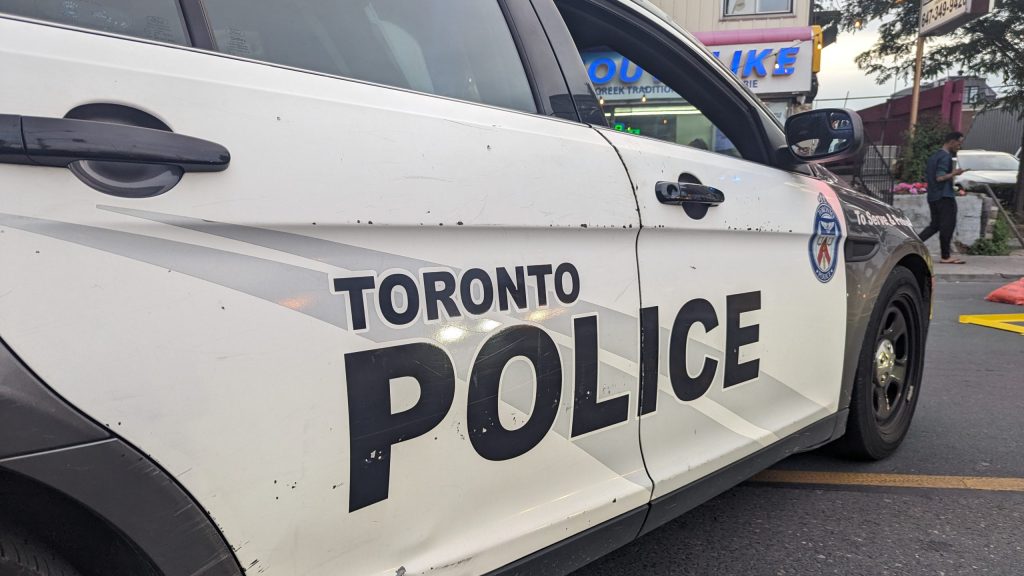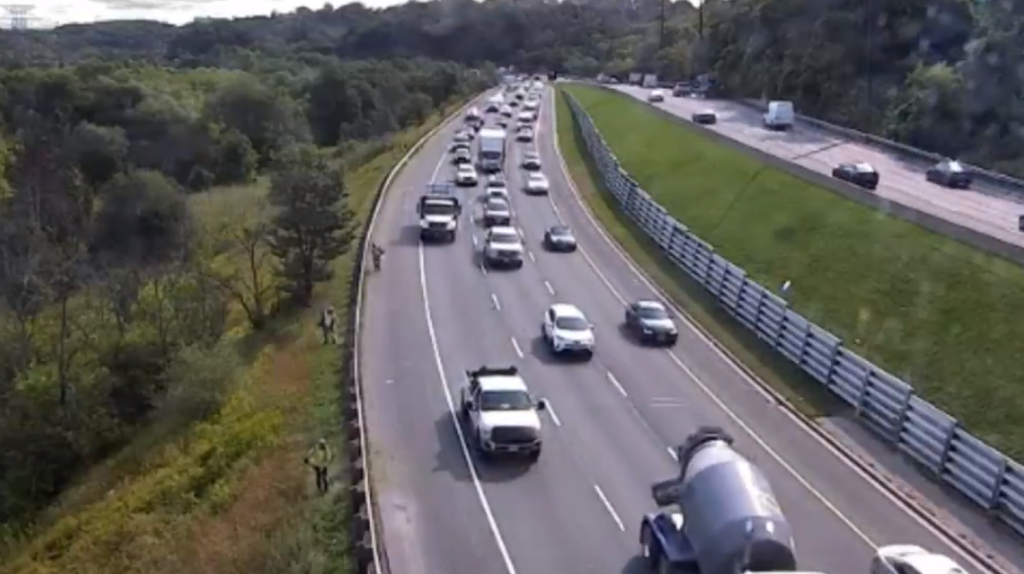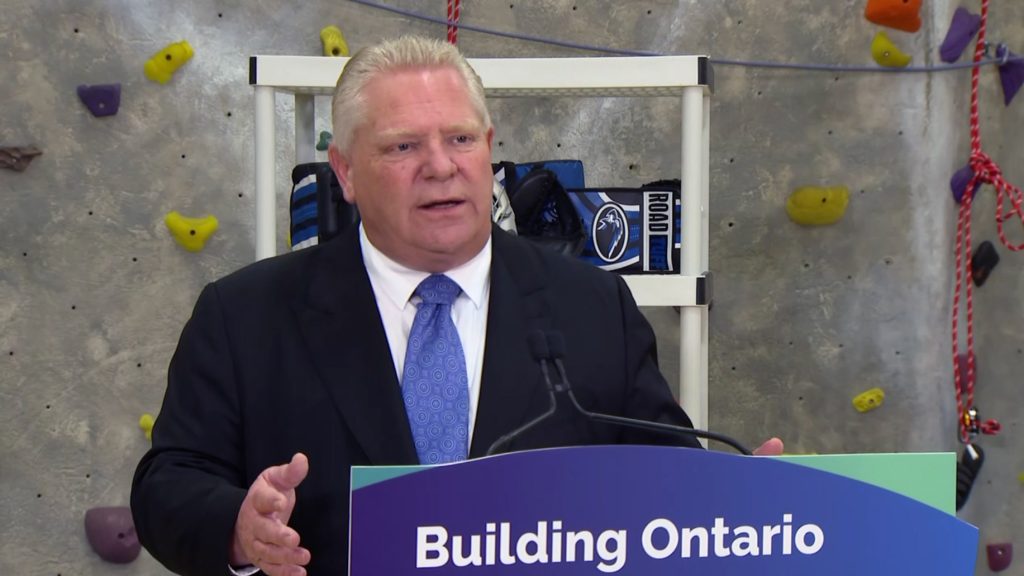Government funding for vital Indigenous friendship centres frozen in time
Posted September 29, 2022 5:13 pm.
Last Updated September 30, 2022 12:00 pm.
Though Ontario’s Indigenous friendship centres perform vital community work across the province, leaders say government funding for the organizations hasn’t increased in decades.
“Friendship centres have been involved in reconciliation since they opened their doors,” said Gertie Mai Muise, CEO of the Ontario Federation of Indigenous Friendship Centres. “Just because we are in an urban centre doesn’t mean we should be ignored.”
As more Indigenous people started relocating to urban settings in the 1960s and 70s, these community hubs became gathering places, rich with culture, that provided essential resources and a loving environment for survivors of trauma.
“There was a growing need, because people were coming out of the residential schools, coming out of child welfare,” explained Muise. “It became obvious quickly that people needed a place to feel safe and to be able to discuss the issues of the day and find solutions for themselves on how to help improve their quality of life.
The grassroots movement expanded over the decades, helping to restore Indigenous cultural ties. Now there are 29 OFIFC-supported locations across Ontario, including two in Toronto. Toronto Council Fire Native Cultural Centre, in Moss Park, is one of the original six Indigenous cultural centres to open in Ontario.
“We serve everyone from before birth, to after death, to everything in between,” said Andrea Chrisjohn of Toronto Council Fire Native Cultural Centre.
Community hub interacts with 200,000 people yearly
The Council Fire began underground in 1976, and was incorporated in 1978.
“In the many years that followed, until we moved here, we occupied basements spaces. We moved from basement to basement, and the irony is that it had been with churches,” noted Chrisjohn.
Since the 1990s, it has operated from a 7,500 square-foot space at the corner of Dundas and Parliament streets. The community hub interacts with more than 200,000 people a year and is considered a second home to many. It’s a food bank and employment centre while offering housing resources, health and legal services, education and healing. The organization collaborates with a network of more than 20 other service providers across the city to meet the needs of its community members, Chrisjohn added. The impact of the pandemic and recent surges in the cost of living have also increased the need for their services.
RELATED: Ontario rental market laden with discrimination, systemic racism: report
“We get quite a number of people who gravitate from other parts of the country, including non-Indigenous people, who come to our doors, and we don’t turn anyone away,” she explained. “The impact is broad.”
The centre is also a place for cultural celebration, bringing Indigenous traditions to public spaces. Today and tomorrow at Nathan Phillips Square, everyone is invited to take part in the cultural centre’s Indigenous legacy gatherings as Canada gets marks the second annual National Day for Truth and Reconciliation.
Funding hasn’t been increased in more than two decades
As Canada works towards reconciling the state’s relationship with Indigenous peoples, Chrisjohn says the federal government should absolutely be fully funding friendship centres and their programs. Muise added that data from Statistics Canada indicates about 85 per cent of Indigenous people in Ontario now live in cities and towns.
“We’re coming into the city, but these are still our traditional territories,” she noted. “Cities grew up around places where indigenous people always lived. It’s not like it’s new, it’s just that we’re a growing population and we need infrastructure, we need programs and services to address our needs, that are basically the result of the legacy of residential schools and colonialization in Canada.”
The Ontario Federation of Indigenous Friendship centres helps support the 29 locations province-wide. While there are several sources of funding, the core operations are partially funded through Indigenous Services Canada. Muise says the money the federation receives from the federal government is inadequate and hasn’t been increased in more than two decades. Five new friendship centres have opened in Ontario in the last 10 years, noted Muise, with at least two more centres hoping to expand.
RELATED: ‘Nothing about us without us’: Learning Indigenous truths from an Indigenous voice
“We are trying to keep what friendship centres we do fund stabilized,” she said. “Especially with inflation, all the changes going on, cost of living increases, friendship centres are really struggling with core operations. So we would not be able to fund new friendship centres until we could secure new resources from, Indigenous Services Canada or another area of funding.”
She called supporting the friendship centres “a no brainer,” noting their work is critical for de-colonization, and for ending violence against missing and murdered Indigenous women and girls, and the two-spirited community.
“The federal government should be looking to organizations, like friendship centres, that already know how to do the work, already have relationships with the urban communities, know what the needs are and know how to assist,” Muise added.
In spring 2022, the National Association of Friendship Centres condemned the Trudeau government for excluding the needs of urban Indigenous communities from its latest budget. The association said these vital cultural hubs stand at a crucial financial crossroads. Earlier this week, CityNews reached out to the federal government to ask about funding the centres, but did not hear back.
Since 2017 Ontario Friendship centres have received funding under the newly created Urban Programming for Indigenous Peoples (UPIP) program, a proposal-based initiative designed to achieve greater collaboration across all levels of government, Indigenous communities, private and not-for-profit sectors to leverage resources and maximize strategic investments.
Over the last five years, they have received the following annual funding allocations through UPIP, that includes a decrease of almost $775,000 in 2021-2022, with no concrete funding plan moving forward.
- 2017-2018 – $5,392,532
- 2018-2019 – $6,867,903
- 2019-2020 – $6,867,903
- 2020-2021 – $8,731,705
- 2021-2022 – $7,957,903
-source Indigenous Services Canada
A spokesperson with Indigenous Services Canada tells CityNews they are continuing to work with organizations such as the Ontario Federation of Indigenous Friendship Centres on longer term solutions, and on a way forward for urban Indigenous programming.
But Muise is very concerned about the real lack of funding and underlines: “There is a need of acknowledging friendship centers as core infrastructure within urban communities, and to fund have it funded properly.”










